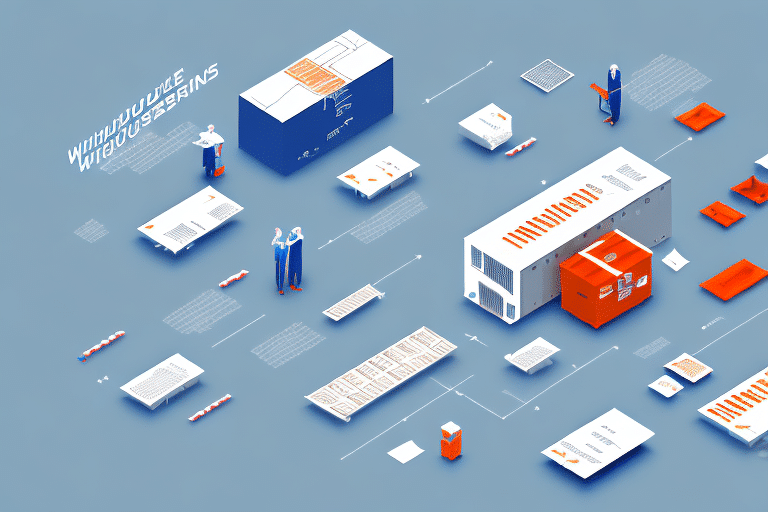Understanding Hybrid Fulfillment: A Comprehensive Guide
Hybrid fulfillment is an order fulfillment strategy that combines multiple fulfillment methods, such as drop-shipping, third-party logistics (3PL), and in-house fulfillment, to satisfy customer orders. This approach offers businesses greater flexibility in their fulfillment processes, enabling them to cater to the unique needs of each order. By selecting the best option based on cost, speed, and other factors, businesses can optimize their supply chain operations effectively.
According to a Forbes report, hybrid fulfillment strategies have seen a 25% increase in adoption among e-commerce businesses in the past year, highlighting their growing importance in the industry.
Benefits of Hybrid Fulfillment
Flexibility and Scalability
One of the primary advantages of hybrid fulfillment is its flexibility. Businesses can scale their operations efficiently by combining in-house capabilities with outsourced solutions.
Improved Customer Satisfaction
Offering multiple delivery options, such as same-day delivery, next-day delivery, and in-store pickup, enhances the customer experience, leading to increased satisfaction and loyalty.
Cost Optimization
By strategically selecting the most cost-effective fulfillment method for each order, businesses can reduce operational costs and increase profitability.
Challenges of Hybrid Fulfillment
Complexity in Operations
Managing multiple fulfillment channels can lead to increased complexity in order processing and inventory management. It's essential to have robust systems in place to handle these complexities efficiently.
Technology Integration
Implementing a hybrid fulfillment strategy requires advanced technology solutions for inventory management, order processing, and real-time data analytics. Integrating these technologies can be challenging and may require significant investment.
Implementing a Hybrid Fulfillment Strategy
Assessing Current Operations
Begin by evaluating your existing fulfillment processes to identify areas that can benefit from a hybrid approach. This assessment helps in understanding the specific needs of your business.
Developing a Comprehensive Plan
Create a detailed implementation plan that outlines the integration of various fulfillment methods, the required technology, and the resources needed. This plan should also include strategies for testing and optimization.
Partner Selection
Select the right third-party logistics providers and technology partners that align with your business goals and can support your hybrid fulfillment strategy effectively.
Optimizing Your Supply Chain with Hybrid Fulfillment
Inventory Management
Hybrid fulfillment allows businesses to strategically allocate inventory across multiple locations, reducing the risk of stockouts and overstocking.
A study by McKinsey & Company indicates that optimized inventory management can improve supply chain efficiency by up to 20%.
Cost Reduction Strategies
- Utilize multiple carriers to find the most cost-effective shipping options.
- Negotiate volume discounts with suppliers and logistics partners.
- Implement data analytics to forecast demand accurately and minimize unnecessary inventory.
Technology and Data Analytics in Hybrid Fulfillment
Inventory Management Systems
Advanced inventory management software is crucial for tracking stock levels across multiple fulfillment centers, ensuring accurate and efficient order processing.
Real-Time Data Analytics
Leveraging real-time data allows businesses to monitor order status, forecast demand, and make informed decisions to optimize their fulfillment strategy.
According to a Gartner report, companies that utilize real-time data analytics in their supply chain operations can see a 15% improvement in efficiency.
The Future of E-commerce and Hybrid Fulfillment
The e-commerce landscape is evolving rapidly, with customers demanding faster and more reliable delivery options. Hybrid fulfillment strategies are well-positioned to meet these demands by offering greater flexibility and scalability.
As per Statista, the adoption of hybrid fulfillment is expected to grow by 30% over the next five years, driven by advancements in technology and changing consumer expectations.
Embracing hybrid fulfillment not only provides a competitive advantage but also ensures that businesses can adapt to the dynamic requirements of the modern marketplace.
Enhancing Customer Experience with Hybrid Fulfillment
Efficient hybrid fulfillment practices lead to faster delivery times, accurate order tracking, and reduced shipping costs, all of which contribute to a superior customer experience. By offering a seamless and reliable fulfillment process, businesses can build long-term relationships with their customers, promoting brand loyalty and driving sales growth.
Implementing personalization strategies based on customer data can further enhance the experience, making customers feel valued and increasing their likelihood of repeat purchases.
In conclusion, hybrid fulfillment is an innovative supply chain strategy that offers businesses greater flexibility, scalability, and cost reduction while optimizing the customer experience. By understanding the benefits and challenges of hybrid fulfillment and implementing it effectively, businesses can gain a competitive advantage and position themselves for success in the rapidly evolving world of e-commerce.






















